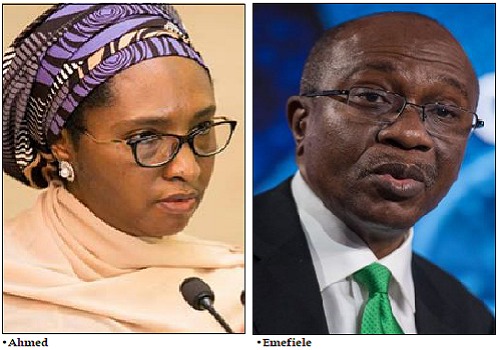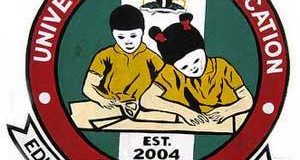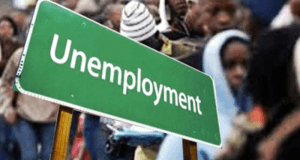…Warns CBN of consequences
…It’s our duty to redesign notes, says CBN
…Idea misplaced, outrageous -Experts
…LCCI: New policy on naira disruptive, insensitive
The plan by the Central Bank of Nigeria (CBN) to redesign the Naira is enmeshed in confusion as the Minister of Finance, Budget and National Planning, Mrs. Zainab Ahmed, disowned the policy statement yesterday. The Minister said she and her ministry were not aware of the policy but only heard of it in the media. She said yesterday that she would not comment on it “as regards merits or otherwise” because her ministry was not consulted by the CBN.
The Finance Minister, who commented on the policy in response to a question raised by Senator Opeyemi Bamidele (APC – Ekiti Central) during the 2023 Budget Defence session she had with the Senate Committee on Finance, warned the CBN of consequences that may arise from the action. Senator Bamidele had in his observation told the Finance Minister that barely two days after the policy was announced by the CBN, the impact of it on the value of Naira to the US dollar was being felt.
Bamidele said: “Just two days after the announcement of the policy, the value (exchange rate) of the Naira to the US dollar has risen from N740 to N788 due to a rush in exchange of stashed Naira notes for foreign currencies, particularly the U.S. dollar. “To me, the policy may be a well-conceived one, but the timing, going by the realities on ground, is very wrong as the Naira may fall to as low as N1,000 to a US dollar before January 31, 2023 fixed for full implementation of the policy.”
But the Minister in her response said she and her Ministry were not aware of the policy but only heard of it from the media. Ahmed said: “Distinguished Senators, we were not consulted at the Ministry of Finance by the CBN on the planned Naira redesigning and cannot comment on it as regards merits or otherwise.
“However as a Nigerian privileged to be at the top of Nigeria’s fiscal management, the policy as rolled out at this time portends serious consequences on the value of the Naira to other foreign currencies. I will however appeal to this committee to invite the CBN governor for required explanations as regards the merits of the planned policy and rightness or otherwise of its implementation now.”
Contacted on the telephone yesterday, the CBN Director, Corporate Communications Department, Mr. Osita Nwanisobi, said the apex bank read the Minister’s position that she was not aware of the CBN’s plan to redesign the naira, just like other Nigerians did.
But he said the apex bank would not comment on the minister’s position until it was in possession of the full details of her interaction with the Senate committee. “The CBN cannot comment on such information until we get the full details of the Minister’s meeting with the Senate Committee. That’s the CBN’s position on the matter,” Nwanisobi said.
A senior official of the CBN, who asked not to be named, however told The Nation that redesigning the currency is part of the apex bank’s responsibilities. The official said: “An exercise like currency redesign and issuance is the sole responsibility of the CBN with the approval of Mr President.
“The functions of the CBN are: to ensure monetary and price stability; issue legal tender currency in Nigeria; maintain external reserves to safeguard the international value of the legal tender currency; promote a sound financial system in Nigeria; and act as banker and provide economic and financial advice to the Federal Government.”
The CBN Governor, Godwin Emefiele had on Wednesday said that the apex bank would redesign the country’s currency from N200 denomination to N1,000 notes. He said that the action was taken in order to take control of the currency in circulation just as he insisted that the bulk of the nation’s currency notes were outside banking operations, adding that the CBN would not allow the situation to continue.
The planned policy, he added, was in line with Sections 19 subsections A and B of the CBN Act 2007, upon which the management of the CBN sought and obtained the approval of President Muhammadu Buhari to redesign, produce, and circulate new series of banknotes at N200, N500, and N1,000 notes. Some economic experts have frowned at the decision of the CBN, describing it as a misplaced and outrageous idea.
The Chief Executive Officer of Centre for the Promotion of Private Enterprise, Dr. Muda Yusuf, says it is difficult to see any compelling reason for the currency redesigning idea. Yusuf, who picked holes in the proposal, described the planned action as outrageous and disproportionate compared to the expected benefits being put forward by the CBN.
He said: “At a time when the government is grappling with high fiscal deficit, debt crisis, severe revenue crisis and underfunding of many government projects and programmes, it is most inappropriate to embark on such a profligate exercise.
“Currency as a percentage of money supply is less than seven per cent. The exercise therefore has no monetary policy significance. Besides, it will come with huge logistics costs and avoidable dislocations to small businesses, most of which are in the informal sector.
“This is one intervention we can do without. There are more urgent issues demanding the attention of the CBN. We have issues with liquidity in the foreign exchange market, the depreciating currency, the recent Moody’s downgrade of Nigeria, soaring inflation and many more.”
Yusuf said the CBN should save the citizens and the economy from what he called “the trauma of this currency redesign”, adding, “It is a distraction we can do without.” Prof. Jonathan Adeyemi Aremu, erstwhile Acting Assistant Director of Research at the CBN, said the policy was misplaced and should not be considered at all.
He said “on the scale of preference, the printing of bank notes should not be the priority now, seriously speaking. Printing of money is not the same thing as monetary policy. “It is the responsibility of the CBN to manage the monetary policy. Whether it is paper or virtual money, effective monetary policy should be well articulated before you can achieve anything meaningful as far as fiscal policy is concerned. “As far as I’m concerned, it is another way of awarding contracts for the boys.”
Policy on Naira disruptive, insensitive-LCCI
The Lagos Chamber of Commerce and Industry (LCCI) yesterday carpeted the CBN over its plan to redesign, produce and circulate new local legal tender.
The Director General of LCCI, Dr Chinyere Almona, said fixing the deadline two to three weeks ahead of Christmas/New Year festivities, two months ahead of the general election, is disruptive and insensitive. She lamented that the organised private sector was already enduring a lot of disruptions ranging from local forex supply to exchange rate and interest rate shocks. She stated that all these aggravate food and energy shocks, arguing that they deserve to be spared the needless disruption from the wild goose chase proposed by CBN so close to the yuletide and the polls.
She said: “The fact that ‘over 80 per cent of the currency in circulation (i.e. N2.73 trillion out of N3.23 trillion) exists outside the commercial banks’ is not sufficient evidence of ‘persistent hoarding of bank notes by members of the public.
“The only reason that currencies are printed is for them to be put in circulation, not to be kept in banks. That is why it is called currency in circulation, which is usually broken down into two components: currency outside banks and vault cash (the cash that banks keep aside to honor requests for cash by their customers).” Almona said that ideally only a negligible portion of currency in circulation should stay in banks’ vaults because it only stays in the vaults when in transit.
According to her, the ultimate destination of every printed currency is outside the banks so that it may circulate from hand to hand for years. “The fact that ‘currency in circulation has more than doubled since 2015, rising from N1.46 trillion in December 2015 to N3.23 trillion in September 2022, does not necessarily present a problem because the GDP also increased from N95 trillion to N210 trillion over the reference period.
“The value of currencies in circulation has been a stable fraction of GDP, roughly 1.34 per cent, over the period.” According to her, replacing old currency notes with new ones is a routine exercise that central banks do not necessarily make noise about with old notes gradually replaced with new ones once they return to the banking system.
She carpeted the CBN for proposing a sudden withdrawal of notes for replacement with redesigned notes, adding that it is of no economic benefit to the country but rather will be implemented with a huge cost to the nation. She said: “Redesigning the N100 to N1000 notes, which should not be a priority now, is a waste of the nation’s time and resources.
“The N100 (equivalent to US 20 cents) to N500 (equivalent to USD1) are due for replacement with Naira coins of the same denominations to make room for the introduction of higher denominations of Naira notes that will be more in line with the value of denominations of currency notes circulating in other climes.
“Information published in the annual report of the Currency Operations Department of CBN reveals that the number of pieces of notes in circulation has exploded from 3.2 billion pieces in 2006, following the phased introduction of N100 to N1000 notes from December 1999 to December 2005, to more than 10 billion pieces of all notes as of 2020. More than five billion pieces of these were N100 to N1000 notes”.
“The LCCI boss lamented that in actual fact, what the CBN is proposing is to redesign and replace five billion pieces of the highest four denomination notes, when the appropriate action to take is to coin N100 to N500 notes and replace them with about a billion pieces of larger denomination Naira notes to cut the monumental waste implicit in continuing to print pieces of low-value notes with a short lifespan.”
She predicted that the Naira will likely experience more exchange pressures that may further weaken it against major currencies if more people decide to buy foreign currencies as alternative store of value. According to her, the CBN needs to be more innovative to establish appropriate policies and take actions that will drive down the inflation rate and strengthen the value of the Naira.
(thenationonlineng.net)
 Newsfront Online …Telling the Public as it is
Newsfront Online …Telling the Public as it is




